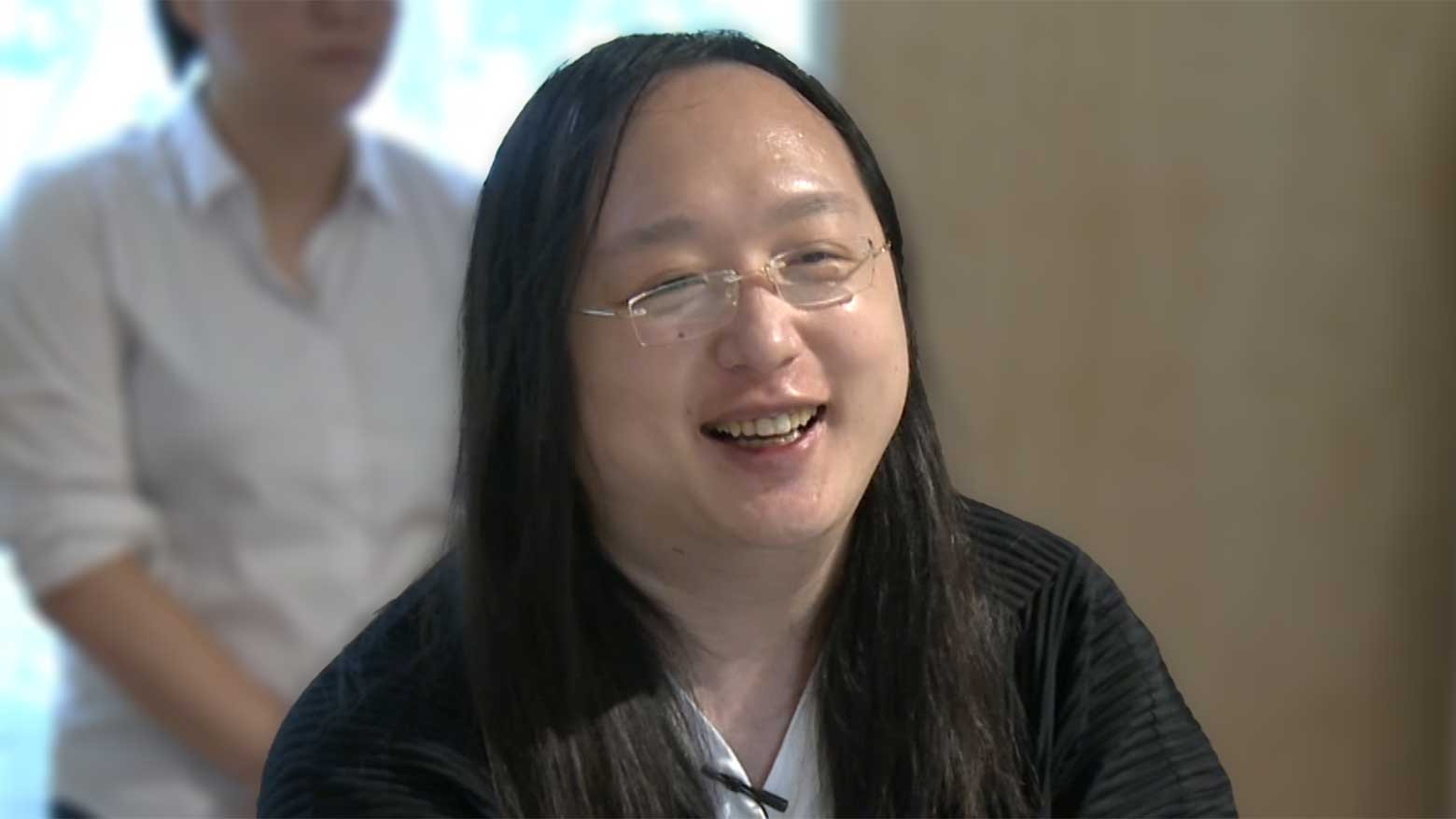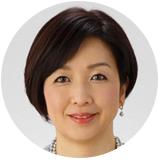Taiwan's approach to stemming the major outbreak of coronavirus seems to be working as the world grapples with the pandemic. According to the Taiwan Centers for Disease Control, the total number of confirmed cases stands at 480, with seven deaths, as of early August, and that's without going into a full lockdown.
The minister known as Taiwan's IT Genius is far from the typical cabinet minister you may have in mind. Tang was featured in a recent edition of Vogue Taiwan, posing in a stylish designer outfit. Vogue used a robot host to quiz her on topics from tech to fashion. NHK World went the more conventional way by interviewing her on Skype. Video interviews and teleworking are not new to Tang, as she has been working on the technology for more than ten years.
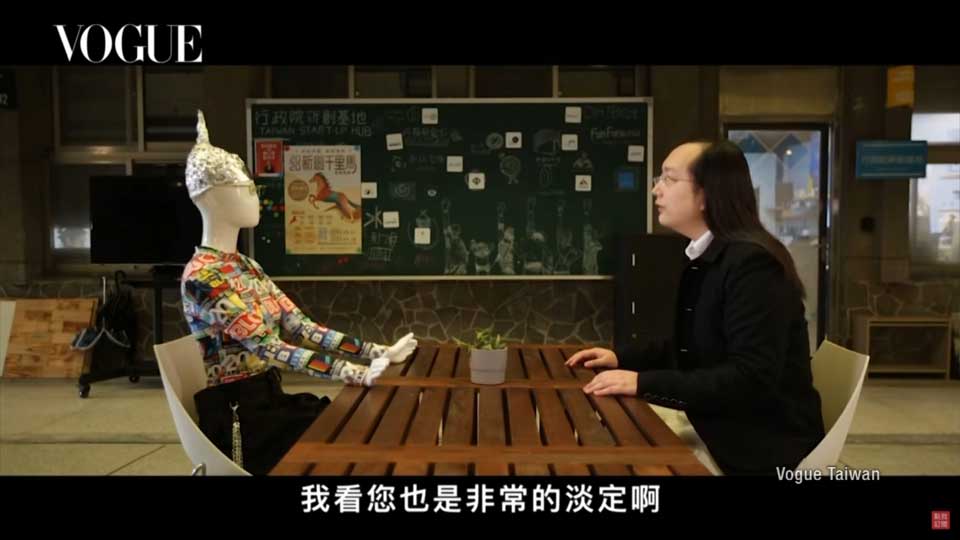
The pandemic is not new either, Tang adds. Taiwan has been through the SARS outbreak in 2003 that cost 84 lives. Painful lessons were learned then on how to prevent future pandemics from wreaking havoc on the island.
It was chaotic during SARS, Tang recalls. And by that she means confusion and panic were caused by a lack of crucial information during the emergency. The panic was exacerbated by the lockdown of an entire hospital with more than 1,000 people caught inside after suspected cases of infection. PCR testing was not widely available, and what we know now as the Central Epidemic Command Center (CECC) did not exist then.
Taiwan is now equipped with a communication strategy designed to ensure vital information reaches the public in time. Ministries and the Command Center work horizontally, so that municipalities and the central government speak with one voice. It all sounds like a classic public relations exercise, but Tang gave a twist to the operation so that key information reaches people fast.
Fast, fair, and fun
The key to avoiding a major outbreak has been branded, "Fast, Fair, and Fun."
"Fast" means that the government responded quickly. After the outbreak was identified in Wuhan, China, in December 2019, Taiwan activated the CECC on January 2 before it had any local confirmed cases. A toll-free hotline stays active 24 hours a day, all year round, to handle disease reporting, consultations, and preventive measures.
The e-Mask scheme Tang played a key role in establishing is an illustrative example of the "Fair" part of the strategy. Taiwan brought together a team of smart machinery and automation companies to expand the production of surgical masks. The government then devised a distribution system that required people to present their National Health Insurance cards when obtaining masks to prevent panic-buying and stabilize the supply, thereby ensuring fair distribution. It also monitored inventories at local drug stores using apps and enabled authorities to deploy a rationing scheme to allay people's worries about shortages.
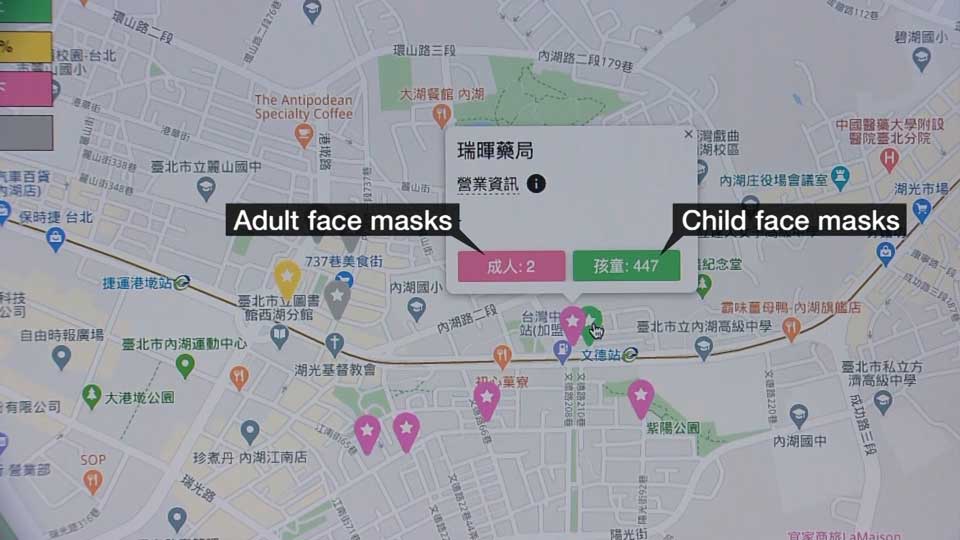
But what if rumors take hold, or there actually is a shortage of essential supplies? What can be done to fight off fake news and conspiracy theories? That's where Taiwan decided to factor in the "Fun" element. Instead of a government spokesperson explaining the preventive measures, the ministry deployed a "spokesdog" mascot that delivers the CECC recommendations.
For example, the dog demonstrates how far people should be from each other for social distancing. Even Taiwan's premier, Su Tseng-chang, got in on the fun and appeared in a cartoon shaking his backside and saying, "We only have one buttock each," to fight off a rumor about a shortage of toilet paper.
With a twinkle in her eyes, Tang says confidently that injecting levity into a serious topic helps. "Conspiracy theories are always very interesting," she says. "And so we make the clarification more interesting than the rumors. It's what we call 'humor over rumor'."
In other words, accurate information provided in time is like a vaccination against fake news and conspiracy theories.
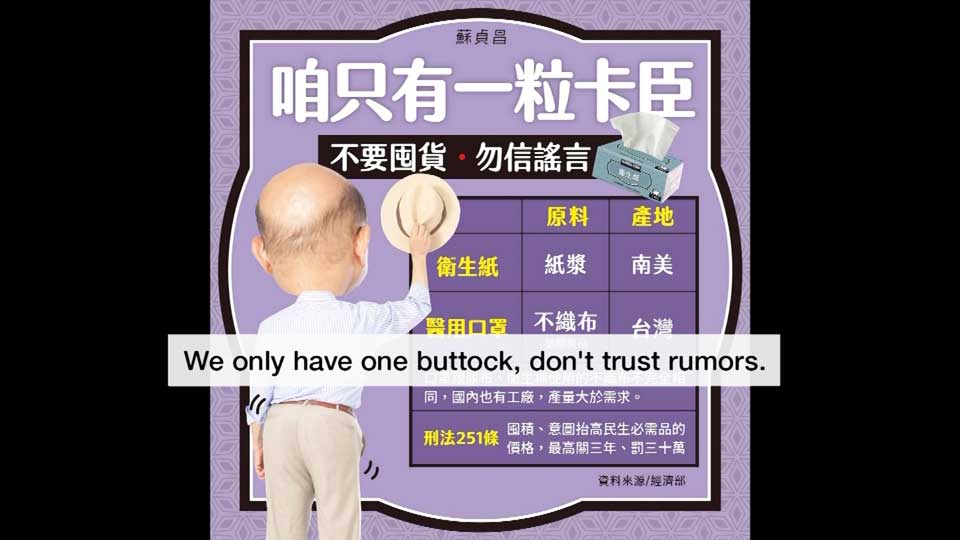
Trust from transparency
The IT-based strategy that Taiwan has put in place suggests it is not only about fighting the virus as a public health issue, but it is also about building trust between the government and the people, thus strengthening society in the process. IT may not be a magic wand that instantly brings the virus under control, but it shapes Taiwanese society by encouraging social innovation and bringing about change.
Radical transparency is one such attempt that best describes IT and its application in Taiwan under Tan's initiative. When an information campaign that may cause public harm is detected on social media, rather than resorting to a takedown, the government puts out a notice, works with fact checkers and journalists, and provides a clarification in a matter of two hours.
Government meeting transcripts are released online after 10 working days in the belief that the early stages of a discussion are the ideal time to bring in civil society participation in setting an agenda.
According to Tang, that's one way of saying to people, "If you have a good idea, I'm going to amplify that idea." In order to help people become active participants in the discussion, rather than passive consumers of information, children are taught media competence in Taiwan as early as the first grade.
Strengthening democracy with social innovation
Social media may indeed provide an inclusive platform that allows equal participation. But the downside of it is that IT can become a double-edged sword. Cyberbullying is an extreme case in which it works negatively to the extent that social media can become a tool that deepens polarization. If democracy was partly about trying to build a consensus in the process of decision making, is finding a balance between consensus and the views of the minority possible?
It is not consensus that she seeks in day-to-day democracy, but a "very soft form of consensus" that encourages people to come on board, Tang clarifies. To be more specific, Tang thinks that such a consensus will allow more room for people who are vulnerable, marginalized, or whose ideas are in the minority, because the aim is not convincing the majority to wholly endorse the idea, but to have people say they "can live with it."
One example Tang gives is the island's decision to legalize same-sex marriage. Although faced with limitations and some stiff opposition, in May 2019, Taiwan became the first in Asia to pass gay marriage legislation. According to Tang, it involves the same rights and duties as straight couples, but it "doesn’t marry the families." Tang sees this as a step toward bringing more diversity to society.
Social innovation, as Tang puts it, is really about strengthening democracy, or "day to day democracy," to be more precise. IT is very much the centerpiece of the process as Taiwan’s people live through the pandemic.
Tang believes when people propose ideas, amplify them and make their own choices, then society changes. That is how Taiwan has managed to stop the spread of the virus so far. The Digital Minister is not just an expert in digital technology, but also someone who believes in the people’s power to bring about positive change.
